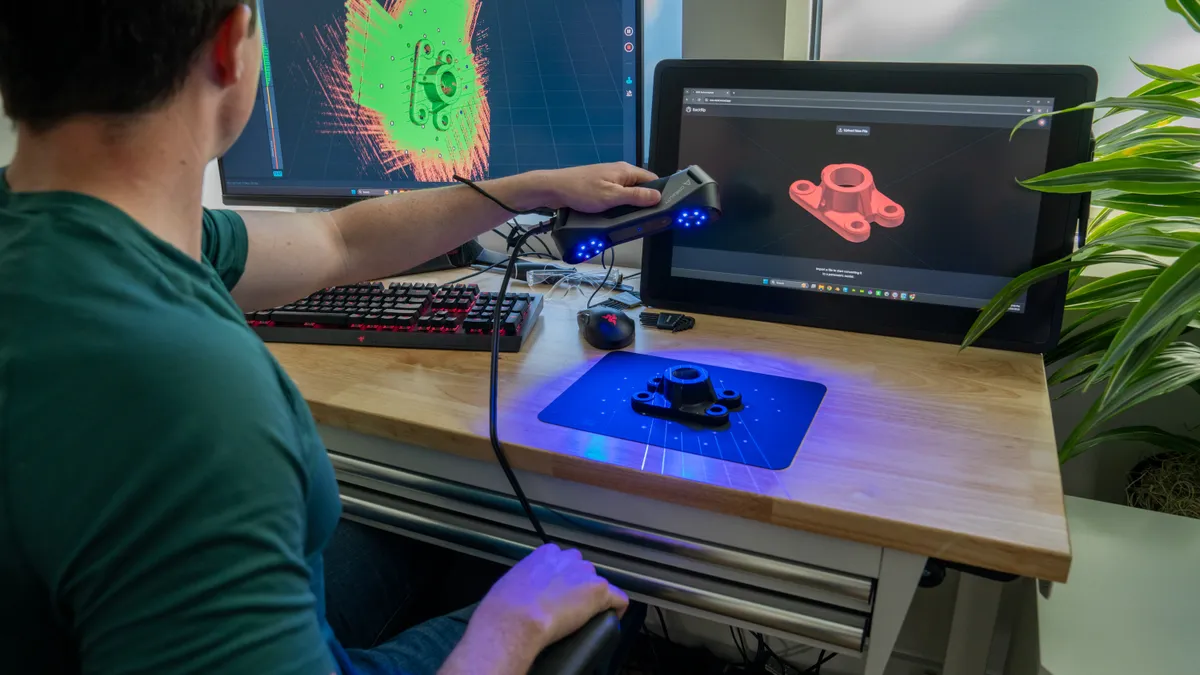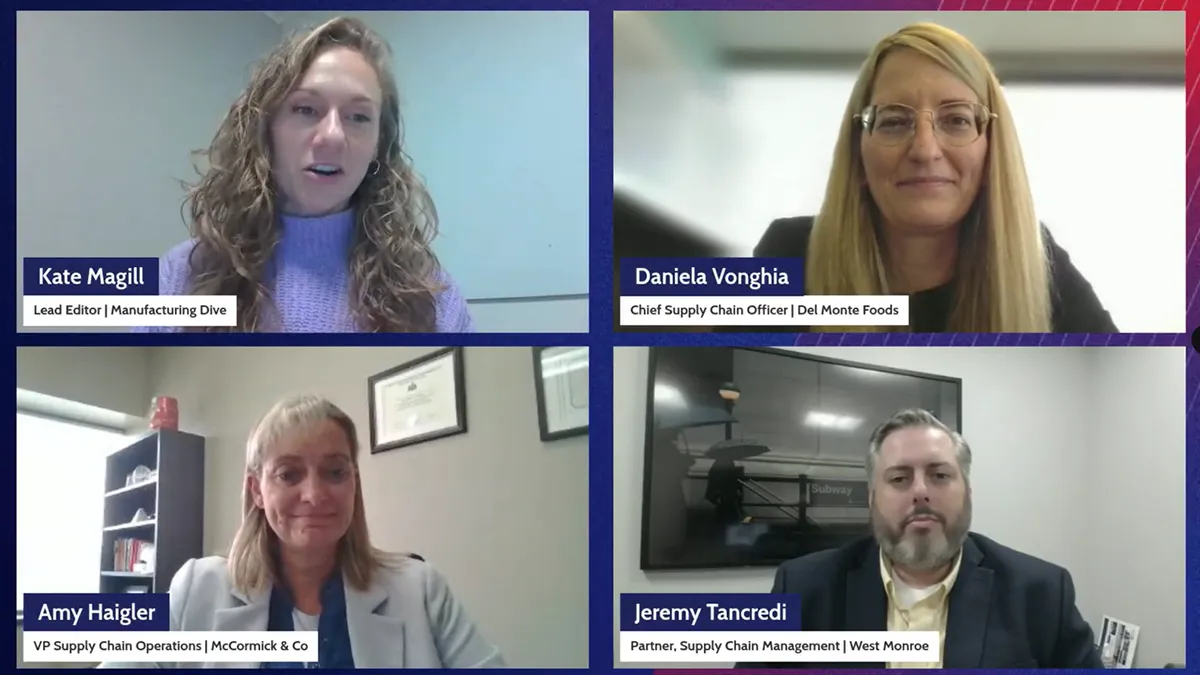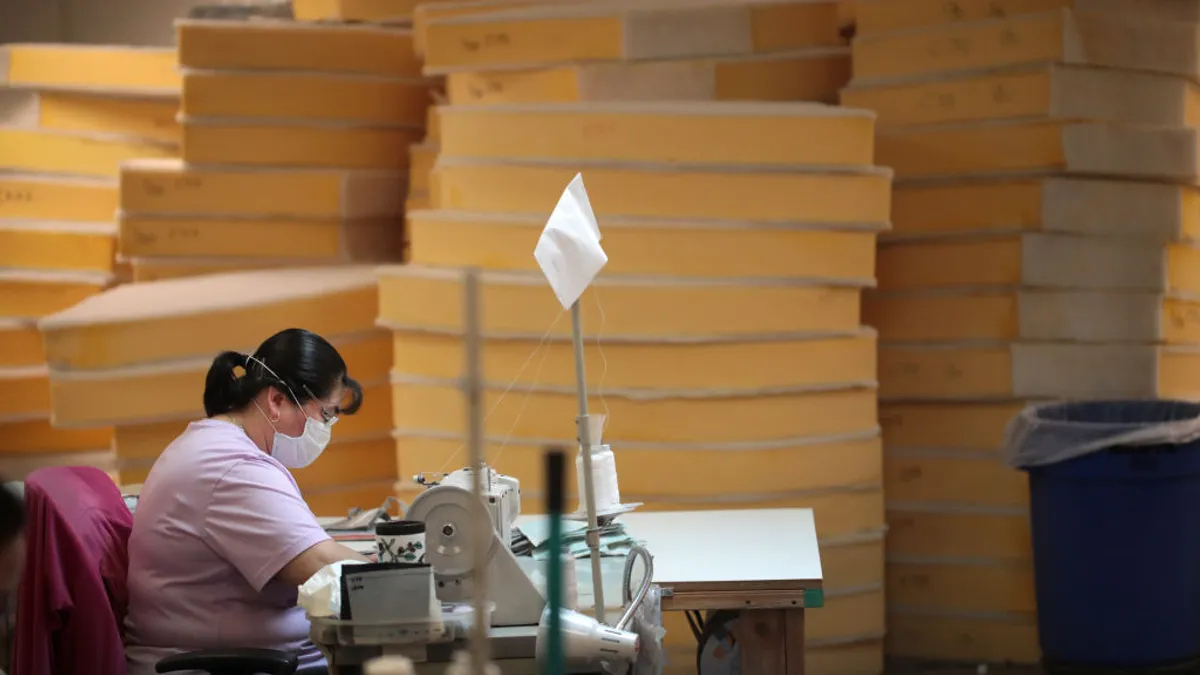Tracy Frost was hesitant about changing roles at the Department of Defense in 2016.
Back then, Frost worked as the director of the department's Small Business Innovation Research/Small Business Technology Transfer program. There, she managed initiatives to help small businesses transition applicable technologies to the military and commercial market.
Her boss at the time suggested she move to a new role as director of the department’s Manufacturing Technology Program, where she would coordinate collaboration across military branches and federal agencies to work with private companies on manufacturing defense contracts.
Frost was passionate about collaborating with small businesses in her former role. She enjoyed helping them execute on innovative business ideas, and she worried her new role would move her away from this work.
However, after taking the job, she learned that 99% of manufacturers in the U.S. are small businesses. As a result, she could still collaborate with small companies through public-private partnerships to advance manufacturing technology used by the military in the program.
Over the last seven years, Frost’s enthusiasm for connecting the Defense Department with small manufacturers has only grown.
“I love working with small businesses, and they just have such passion for what they do,” Frost said.
Fostering connections
The Manufacturing Technology Program, known as DoD ManTech, was established in 1956. The program works with small manufacturers to improve the military's platforms, keep service members safe and improve national security.
“ManTech is a legislatively mandated program,” Frost said. “[The legislation] talks about what we do and what we're asked to do. It's [about doing] good things for manufacturing, for the department and for the benefit of the U.S. [and] for national security, including workforce development.”
The program runs three separate investment programs: the Manufacturing Science and Technology Program, Manufacturing Innovation Institutes and Manufacturing Education and Workforce Development program.
As director, Frost oversees these segments and coordinates the needs of the U.S. Navy, Army, Air Force, Defense Logistics Agency and the Office of the Secretary of Defense, as well as others. Each of these agencies seeks resources from ManTech to do research and invest in building technologies that meet the needs of service members, such as weapon systems.
Frost navigates all of these needs and various agency standards alongside the program’s nine manufacturing partners, which operate as the Manufacturing Innovation Institutes. The public-private partnership's members are small companies in various sectors, from biomanufacturing to additive manufacturing.
As director, she helps bridge these priorities with the resources and ideas brought forth by manufacturers.
“We get together and make sure we talk about what we're doing, what our priorities are from each service, [and] how do we leverage and work together,” Frost said. “It's a working group that gets together and steers the investments [and] strict policies."
Frost laid out the institutes' work in describing how manufacturers could be contracted to improve the safety of humvees. A military branch might reach out to ManTech and its institutes to ask for help contracting manufacturers to take on the project to develop an improved vehicle with lower turnover rates that will keep service members safer.
Such a need was fulfilled in 2021, when the Army awarded Ricardo Defense a three-year, $89 million contract to provide it with anti-lock brake system retrofit kits for humvee vehicles.
The critical role of small manufacturers
One of the lessons Frost took from her previous role directing small business innovation research was how small businesses operate.
“I got to really understand ... what keeps them up at night,” Frost said. “And that really helps translate how we set some priorities and support them on the manufacturing side because I think they can be forgotten sometimes.”
Frost notes that while each player involved in DoD ManTech's many projects plays a critical role in advancing manufacturing for the U.S. military, small businesses are her "heart."
“I love that we recognize and I tried to articulate that small businesses have such a critical role in this because the innovation pipeline comes from the small businesses,” Frost said.
ML Mackey, CEO and cofounder of software company Beacon Interactive Systems, said Frost encourages collaboration that improves public-private work across the federal marketplace. Mackey's company works with the ManTech program to produce three mission critical systems that are an active deployment across every Naval ship, southern carrier, and fleet.
Mackey has worked with Frost since the late 2000s when the two partnered on the Navy’s Small Business Innovation Research program. When Frost took over the ManTech Program, she invited Beacon to come with her and get involved in the work.
"That connection-making is critical to driving innovation our federal government needs," Mackey said.
Mackey noted Frost's ability to see manufacturers' work with ManTech not just on an individual partner basis, but on a system-wide level to push forward innovation and spark change.
"One of the things I really appreciate about Tracy Frost is she is thoughtful to the innovation ecosystem," Mackey said. "Many people are thoughtful to their job, and what their program does. And she is thoughtful to the outcome of what her role is."
When Defense officials, large companies and small manufacturers get together at conferences or at Manufacturing Innovation Institute member meetings, Frost helps make connections.
"It's interesting, because big companies will say, 'Well, I got exposed to an incredible amount of new capabilities from small businesses that would take me like months and years to get to,'" Frost said. "And the small businesses are saying, 'How long would it take me to get a meeting with a Lockheed Martin executive?' It's great. It's like speed dating."
Frost added that federal officials and large businesses sitting in on the Manufacturing Innovation Institute member meetings see the possibilities small businesses can offer the government. It's a key illustration of the impact of ManTech's work to foster connection in the industry.
"It's such a fantastic… beautiful machine that works when you get everybody in the room to lay down capabilities, requirements, identify the gaps, and it just works," Frost said. "It helps us focus those investments."




















